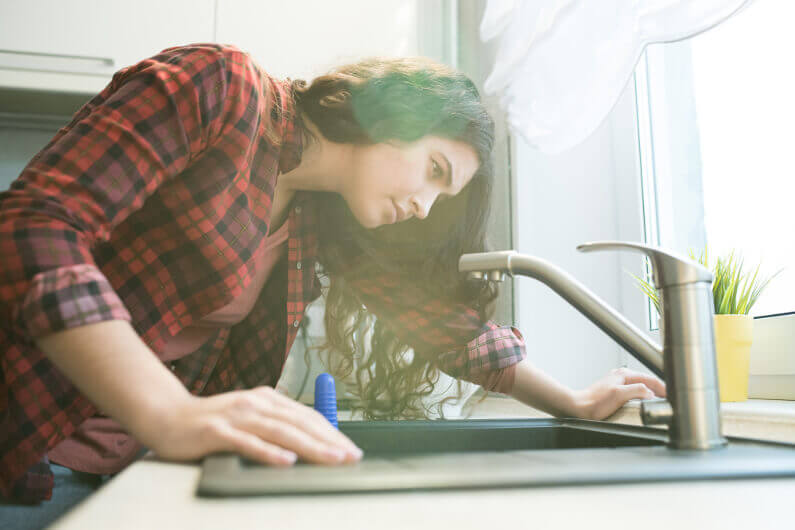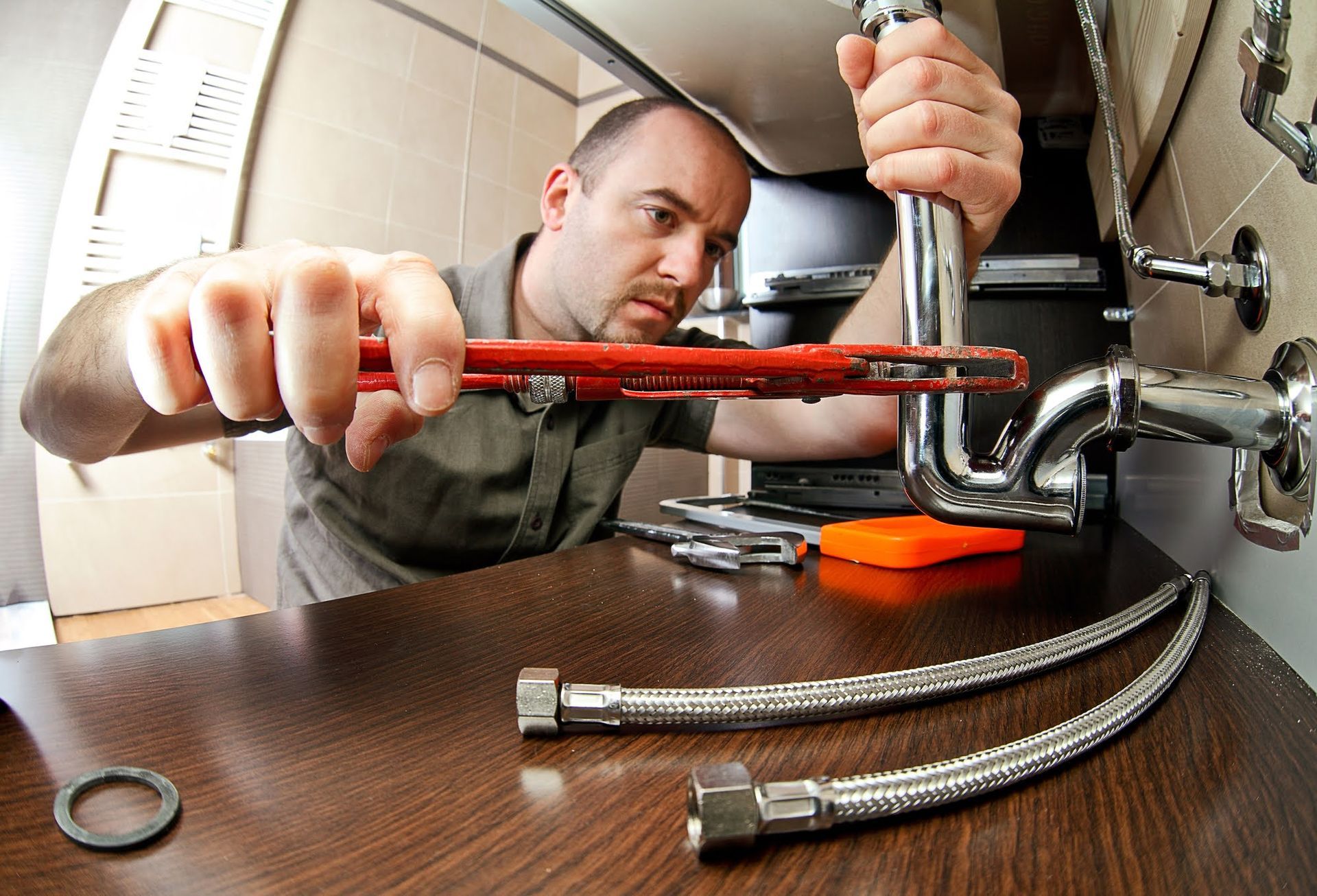They are making a number of great pointers about Common Plumbing Problems in Older Homes in general in this great article just below.

Older homes typically feature charm, personality, and history, however they can likewise bring a host of pipes issues. Whether you're handling maturing pipelines, low tide stress, or leakages, knowing just how to resolve these usual issues is vital to maintaining a secure and practical home. In this overview, we'll check out the regular plumbing obstacles faced by older homes and supply functional remedies to keep your pipes in leading form.
Recognizing Usual Pipes Problems
Aging Pipelines
Among the most usual concerns in older homes is maturing pipes. Relying on the period in which your home was built, the pipelines may be made from products that have weakened gradually, such as galvanized steel, cast iron, or perhaps lead. These materials can corrode, come to be breakable, or develop leakages, leading to water damages and prospective carcinogen.
Low Tide Stress
If you're experiencing low tide pressure, maybe as a result of natural resources, rust inside the pipelines, or old components that are no more working effectively. This can be a major aggravation, especially in locations like showers and sinks.
Dripping Pipes
Leakages are an additional regular concern in older homes, often brought on by rusty or worn-out pipelines. Even small leaks can cause substantial water damage, mold growth, and enhanced water bills if not resolved without delay.
Out-of-date Fixtures
Out-of-date pipes fixtures such as faucets, toilets, and showerheads not only look old yet may additionally be less reliable, vulnerable to leakages, or incompatible with contemporary pipes standards.
Pipe Rust
Deterioration is a typical trouble in older pipes, specifically those made from galvanized steel or cast iron. Rusty pipelines can restrict water flow, trigger staining, and eventually cause leakages or pipeline bursts.
Analyzing the Problem of Your Plumbing
Evaluating Visible Pipes
Beginning by checking any kind of visible pipelines in your house, such as those in basements, crawl spaces, or under sinks. Seek indications of deterioration, leakages, or rust, which can show underlying issues.
Checking for Leakages
Check for leaks by evaluating areas around taps, commodes, and under sinks. You can additionally check your water meter prior to and after a period of no water utilize to identify surprise leakages.
Water Quality Screening
Older pipelines can affect the top quality of your water. Conduct a water quality examination to check for impurities such as lead, corrosion, or various other contaminations that may be presented by maturing pipelines.
Solutions for Usual Plumbing Concerns
Changing Aging Pipes
If your home has old, weakening pipes, think about changing them with modern-day materials like copper or PEX. This can be a significant financial investment, but it will avoid future issues and boost the security and reliability of your pipes system.
Dealing With Low Tide Stress
To deal with low water pressure, begin by cleaning or changing old components and getting rid of mineral buildup in the pipelines. If the issue continues, it might be required to change sections of corroded pipelines.
Repairing and Replacing Leaking Pipelines
For little leakages, you can utilize pipe clamps or epoxy putty as a short-lived solution. Nonetheless, it's best to replace dripping pipelines totally to stay clear of additional damage.
Upgrading Fixtures
Upgrading old components to modern, water-efficient models can enhance your home's pipes performance and decrease water consumption. Search for components with the WaterSense tag for the best performance.
Taking Care Of Pipe Rust
If your pipelines are rusted, changing them with corrosion-resistant materials like copper, PVC, or PEX is the best remedy. Routine assessments and water quality maintenance can aid stop better rust.
When to Call a Professional
While some pipes problems can be taken care of with DIY options, there are times when it's best to employ an expert. If you're handling significant leakages, considerable deterioration, or are uncertain concerning the condition of your pipes, a qualified plumbing can give expert evaluation and repair service.
Preventive Maintenance Tips
Regular Inspections
Regularly check your plumbing system for indications of damage. Capturing concerns early can stop expensive fixings down the line.
Water Pressure Law
Ensure your water stress is within the recommended variety to stay clear of worrying your pipelines and fixtures. A plumber can install a pressure regulator if needed.
Water Top Quality Maintenance
Install water filters or conditioners if your water high quality is poor. This can safeguard your pipes and components from damages triggered by hard water or impurities.
Aggressive Pipe Replacement
If your home has very old pipelines, take into consideration aggressive substitute prior to significant concerns develop. This can conserve you from emergency repair work and water damages.
Final thought
Dealing with pipes concerns in older homes calls for a mix of vigilance, preventative upkeep, and timely upgrades. By comprehending the common obstacles and understanding when to seek expert aid, you can guarantee your plumbing system continues to be functional and reliable for several years to come.
Common Plumbing Issues in Older Homes and How to Fix Them
Owning an older home in Australia comes with its unique charm and a set of challenges, especially when it comes to plumbing. The Sunshine Coast has many older properties that can harbour plumbing problems that aren t just inconvenient but potentially costly. Here s a look at some common plumbing issues in older homes and expert advice on how to handle them.
Outdated Piping Materials
Many older homes were built with galvanised steel, cast iron, or even lead pipes, materials that are far from ideal by today s standards. Galvanised pipes are prone to corrosion and clogging, while lead pipes pose serious health risks.
How to Fix:
Replacing old pipes is a job for a professional. Upgrading to copper or PVC piping not only enhances water quality and flow but also increases the property s safety and value. If you suspect your home has outdated materials, a licensed plumber can conduct a thorough inspection and recommend the best course of action.
Corrosion and Pipe Degradation
Over time, exposure to water and minerals can cause pipes to corrode, leading to leaks, bursts, and water contamination. Corrosion is especially common in homes over 50 years old.
How to Fix:
Regular inspections can catch early signs of corrosion. If corrosion is found, the affected section of piping often needs to be replaced. For homes with extensive corrosion, a complete plumbing overhaul might be necessary. It s crucial to consult with a plumbing expert to understand the extent of the issue.
Tree Root Intrusion
Older neighbourhoods usually have mature trees whose roots can intrude into pipe lines, causing blockages or damage. This is particularly problematic for sewer lines, where roots seek out water sources.
How to Fix:
A plumber can use a specialised camera to inspect sewer lines for root intrusion. If roots are a problem, methods like root cutting or hydro-jetting can clear the obstruction. In severe cases, part of the pipe may need replacing. Consider root barriers around the piping to prevent future issues.
Inadequate Water Pressure
Low water pressure in older homes can be due to various factors, including corroded water lines, sediment build-up in pipes, or outdated fixtures.
How to Fix:
First, check if the low pressure is isolated to one area or throughout the house. Replacing old fixtures can sometimes resolve the issue. However, if the problem is more widespread, it might be due to sediment or corrosion. Flushing the system or replacing the affected pipes usually restores normal pressure. Again, a professional assessment is advisable.
Outdated Fixtures
Older homes often feature fixtures that are not only visually dated but functionally inefficient. This includes everything from toilets and taps to showerheads and washing machine hoses.
How to Fix:
Updating these fixtures can improve both water efficiency and the aesthetic appeal of your home. Modern fixtures are designed to conserve water, which can significantly reduce your water bill and lessen your environmental impact.
Conclusion
Maintaining the plumbing in an older home requires a proactive approach. Regular checks and updates are key to preserving these beautiful properties. If you re facing plumbing issues in your older home, it s best to call on experienced professionals like Green & Gold Plumbing & Gas. With the right expertise, even the most daunting plumbing problems can be resolved, ensuring that your home s character is maintained while its functionality is enhanced.
https://gandgplumbing.com.au/common-plumbing-issues-in-older-homes-and-how-to-fix-them/

Do you enjoy reading about Common Plumbing Problems in Older Homes? Place a remark down the page. We would be delighted to know your suggestions about this content. We are looking forward that you visit us again in the near future. Sharing is good. You won't know, you may very well be helping someone out. Thanks a bunch for your time. Come back soon.
Schedule Today